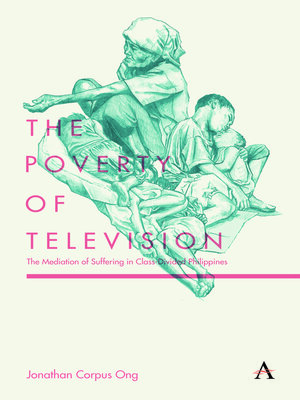The Poverty of Television
ebook ∣ The Mediation of Suffering in Class-Divided Philippines · Anthem Global Media and Communication Studies
By Jonathan Corpus Ong

Sign up to save your library
With an OverDrive account, you can save your favorite libraries for at-a-glance information about availability. Find out more about OverDrive accounts.
Find this title in Libby, the library reading app by OverDrive.



Search for a digital library with this title
Title found at these libraries:
| Library Name | Distance |
|---|---|
| Loading... |
Based on a 20-month ethnographic study of television and audiences in class-divided Philippines, this is the first book to take a bottom-up approach in considering how people respond to images and narratives of suffering and poverty on television. The book aims to contribute to the broader project of de-Westernizing media studies and explore the tension between ethical prescription and anthropological description in the social sciences and humanities. Winner of the 2016 Philippine Social Science Council Excellence in Research Award.
|Based on an extensive ethnographic study of television and audiences in class-divided Philippines, this is the first book to take a bottom-up approach in considering how people respond to images and narratives of suffering and poverty on television. Arguing for an anthropological ethics of media, this book challenges existing work in media studies and sociology that focuses solely on textual analysis and philosophical approaches to the question of representing vulnerable others. Current questions in media ethics, such as whether to portray sufferers as humane and empowered individuals or show them 'at their worst' have so far used textual and visual analyses to convey the researcher's own moral position on the matter. In contrast, this book, inspired by the anthropology of moralities, accounts for the different interpretations and moral positions of audiences, who are positioned in various degrees of social and moral proximity to those they see and hear on television. Winner of the 2016 Philippine Social Science Council Excellence in Research Award.







